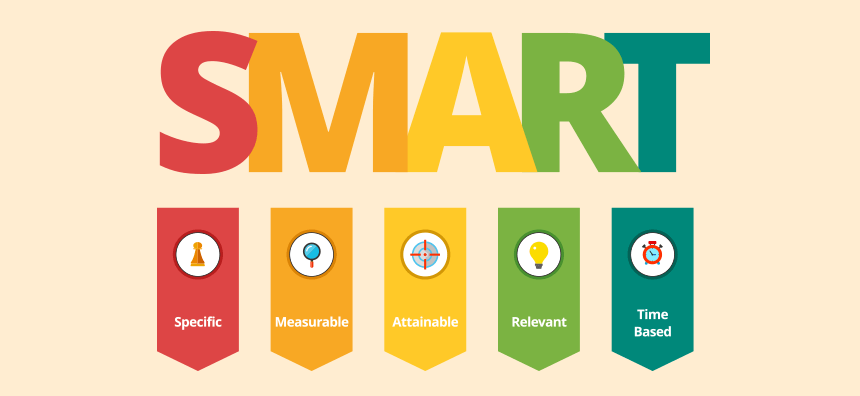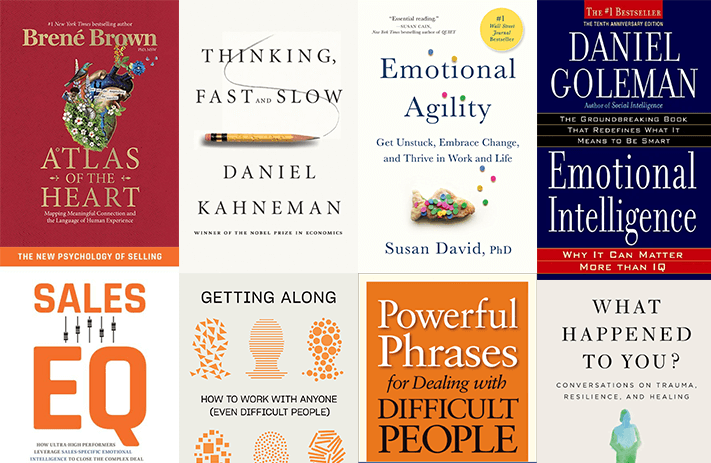
Click the button to start reading
15 Examples of Professional Work Goals
Are you feeling a sense of dread, because your employer asked you to come up with a list of professional work goals? Rest easy, we’ve got you covered! In this blog post, we’ve listed tons of awesome professional work goal examples to inspire you.
And, while most of them are the type of HR-approved goals you’d expect, we understand there are some goals you might not want to share with HR–like your desire to leave work at 4 PM every day or to earn the maximum amount of money for doing the minimum amount of work.
That’s why this list also includes some professional goals you might want to keep to yourself, such as your plans to launch a new career.
However, before we get to those, let’s first define what professional work goals are, examine why they’re worth setting, and look at some of the ways you can increase the likelihood of achieving your professional goals. Then, on to the examples!

What Are Professional Work Goals?
Professional work goals are goals that are set with the objective of furthering your career, while improving your skills and abilities in the workplace.
Goal setting is done with an eye toward the future–for instance, by thinking through the answers to questions like, “Where do I want to be professionally in a year?” and “What do I want to be doing in 5 years?”
Sometimes, the answer is readily apparent i.e., “I want to be Chief Technology Officer.”
Other times, you might have no idea … that’s when we recommend setting goals that’ll help you determine where your interests lie and what you might enjoy doing in the future.
Regardless of whether you know where you want to be 5 years from now or are still figuring things out, it’s useful to set both short- and long-term goals.
Generally speaking, short-term goals consist of anything you can accomplish within the next 6 months, whereas long-term goals typically take longer than 6 months to achieve.
By establishing both kinds of goals, you’ll have a clear roadmap of the steps you need to accomplish–both in the short-term and the long-term–to ultimately create the career of your dreams.

Why Set Professional Work Goals?
There are tons of reasons it’s well worth it to set professional goals–whether your manager is making you do it or not.
Of course, when higher-ups are asking you to do it, it’s because they want to turn you into a better employee. While that’s all well and good for them, you stand so much to gain for yourself by establishing professional work goals.
For instance, here are some of our favorite reasons for creating professional work goals:
-
Clear Direction – All too often, it’s easy to get caught up in busy work and the mundane realities of everyday life. Sure, there are things we want to accomplish, but we may struggle to find the time and clarity to do so.
Professional goal setting forces us to establish a clear vision of where we want to go, which is so important, because as inspirational author Norman Vincent Peale put it, “All successful people have a goal. No one can get anywhere unless he knows where he wants to go and what he wants to be or do.”
In the absence of knowing these things, you’re bound to have a less fulfilling professional life … after all, doesn’t it sound preferable to actively participate in shaping your career, rather than idly waiting to see where the current takes you?
-
Higher Earnings – Setting goals–then making concrete plans to achieve them–is linked to significantly higher earnings. Take, for instance, a Harvard Business School MBA study of graduating seniors, who were asked whether they had written goals and a concrete plan for achieving them.
Interestingly enough, the study determined that:
- 3% of the class had written goals and a concrete plan
- 13% of the class had written goals but no concrete plan
- 84% of the class didn’t have written goals or a plan
A decade later when researchers compared incomes among the study participants, they discovered that those who set goals and had a written plan for achieving them were making ten times as much as the remaining 97% of their class!
So, rather than viewing goal setting as merely an exercise to placate your boss, think of it as a real opportunity to improve your standard of living.

-
Job Security – Setting goals and achieving them helps you to improve your professional skills, while showing your employer how much value you bring to your position. Not only will that help you during future performance reviews, but it’ll also give you more secure footing at your organization.
While, of course, establishing yourself as a valuable team player isn’t a guarantee you’ll never be terminated, it can go a long way toward decreasing the likelihood.
-
Empowerment – There may be nothing more empowering than setting goals, taking steps to achieve them, then celebrating once you’ve accomplished what you set out to do.
By creating–then working toward–your professional goals, it may at first seem like you’re stepping outside your comfort zone. However, once you begin noticing the progress you’re making, you’ll develop a greater sense of mastery, a boost in self-confidence, and higher self-esteem–which are all worthy goals in their own right!
-
Passion – Working toward something you desire is a great way to inspire passion and engagement. Rather than merely going through the motions at your 9-to-5, goals motivate you to work toward your vision of a better, more enjoyable career.
Not only will that passion make you feel more engaged at work, but it’ll also spill over into other areas of your life.
For instance, as you start feeling more enthusiastic about the professional future you’re working toward, your upbeat outlook can’t help but have a positive impact on your relationships, both personal and professional.
-
Better Time Management – It’s ironic–the more free time you have, the less efficient you’re likely to be. That’s because as Ohio State professor Lawrence Needleman explains, “having large amounts of unstructured time can contribute to procrastination.”
Because it typically takes additional time and energy to achieve your professional work goals, you’re forced to develop good time management skills and yep, lose any tendency you may have to procrastinate.

How to Set SMART Professional Work Goals
When it comes to setting work goals, SMART goals are the way to go. SMART is an acronym that stands for Specific, Measurable, Achievable, Relevant, and Time-Bound. Before we go any further, let’s take an in-depth look at each of those elements:
-
Specific – A SMART goal isn’t vague, instead it has a clear-cut objective. For instance, consider the two following statements:“I’m going to go back to school.”
“This spring semester, I’m going to earn a Social Media Marketing certificate from Portland State University.”
As you can see, although each of these statements identifies goals, the second statement is highly specific, whereas the first one isn’t well-defined at all.
For instance, what does “going back to school” mean–taking one class at a local community college, earning a Master’s degree, or something else altogether? A SMART goal spells these details out.
-
Measurable – SMART goals are measurable, making it easy to determine whether they’ve been successfully achieved. For instance, take the goal of returning to school to earn a Social Media Marketing certificate. It’s simple to assess whether this goal’s been accomplished–either you got a certificate or you didn’t.
However, not every goal is so easily quantifiable. Say, for example, you want to improve your public speaking skills. How do you know when you’ve achieved your goal? This is something that’s difficult to measure.
We suggest that when you run up against a goal that’s hard to quantify, you find a way to tweak it, so you can measure it in some relevant way. For instance, if you want to become a better public speaker, you might make a goal of speaking at a Toastmasters event twice a month for the next 6 months. Consistent practice is bound to improve your public speaking skills, and because your Toastmasters’ attendance is measurable, you can easily determine whether you’ve achieved your goal.
-
Achievable – If you set a lofty, unattainable goal, you’ll only grow frustrated when you work hard to achieve it–but still miss the mark. Worse, you might become discouraged or experience a crisis of confidence, because you failed to do something that wasn’t realistically possible.
That’s why SMART goals are achievable–although they might be ambitious, they’re always grounded in realism. For example, if you’re working in the mailroom today, it’s highly unlikely you’ll be promoted to CEO within the next year. A goal of heading up the mailroom during that same period, however, is a reasonable, achievable goal.
-
Relevant – There may be multiple professional work goals clamoring for your attention. However, there are only so many hours in a day, so you need to be choosy by making sure your professional work goals are relevant to your broader career aims.
For instance, say you’re considering a goal of learning to speak Chinese. While that may be relevant to your career aspirations if you’re a financial analyst for a multinational corporation, it’s less likely to be so if you’re a nurse.
So, when developing your professional work goals, consider where you want to be in 5 years and what you need to do to get there. Then, select work goals that are relevant to where you are right now, while also being aligned with the professional future you desire.
-
Time-Bound – A SMART goal is time-bound, meaning that you’ve given yourself a timeframe in which to achieve it. That’s important because setting a deadline will help you stay focused so you make consistent progress.
For instance, take the following two examples:
- I intend to write a book.
- I intend to complete the first draft of my memoir within 6 months.
As you can see, the first statement doesn’t really light a fire under you. The theoretical book may be written in a year, five years, or sometime after never.
By contrast, the second statement clearly sets out a timeframe for the book to be written, and because it does so, it’s easier to identify which tasks need to occur (and when) to make that goal a reality.
For instance, you might say to yourself, “I need to complete two chapters a month to finish the first draft within six months. To accomplish that, I’m going to block off two hours a day, five days a week, to work on my book.” As you might imagine, this level of clarity drastically improves the likelihood that you’ll meet your goal.
So, now that you understand SMART goals, let’s take a look at how you can set yourself up for goal-setting success!

What You Need to Know About Goal Setting to Be Successful
According to science, 92% of people fail to achieve their goals. What makes the 8% of people who succeed different? They typically have certain goal-setting habits that distinguish them from their less accomplished peers.
For instance, research shows that you’re more likely to achieve your goals if you do the following 5 things:
-
Write Your Goals Down – There’s something magical about writing goals down, rather than allowing them to just rattle around in your brain. In fact, the mere act of committing a goal to paper increases the likelihood that you’ll achieve it by 42%, according to one study.
So, when developing your professional work goals, write them down. Not only will this increase your commitment, but it’ll also force you to get really certain about what it is you want to accomplish.
-
Realistically Evaluate Your Goals – One reason people give up on their goals is because they don’t realistically assess what it’ll take to achieve them. Most big goals require a serious investment of time and focus, and unfortunately along the way, there can be times where it doesn’t seem like you’re making any progress.
Say, for instance, that you have a goal of speaking Italian fluently. You can tackle a Duolingo lesson every day for 30 days, and at the end of that timeframe, get discouraged that at best, you can still only greet a stranger in Italian.
That’s why you’ll want to develop a realistic understanding of what steps are required to achieve your goal and just as importantly, how long those steps are likely to take. As the saying goes, Rome wasn’t built in a day.
Once you’ve done your homework, then decide if your goal’s worth it. If you still think it is, set milestones for your goal’s attainment. These milestones will help you see that you’re making progress–even if your overall, “big” goal is still a ways off.

-
Find Your Inner Grit – When it comes to goal achievement, grit matters. According to Angela Duckworth, researcher and author of the New York Times bestseller Grit, grit can be defined as a blend of passion and perseverance to achieve a long-term goal.
In other words, grit’s the ability to consistently practice over time until reaching a goal, even when challenges emerge–which is why a passion for your goal is essential. After all, if you don’t feel excited about your goal, you’re unlikely to keep at it when obstacles crop up.
So, how can you apply this information when setting your professional work goals? One way is to realize that if you feel passionate about the goal you’re considering, that’s a step in the right direction–the more enthusiastic you feel about your goal, the better your likelihood of achieving it.
Additionally, you’ll want to remember that consistent practice (even in the face of challenges) is crucially important to goal achievement. So, establish a certain number of hours per week that you’ll devote to your goal and keep at it–even if you experience setbacks.
If perseverance is something you’ve struggled with in the past, consider working one-on-one with a career coach who will hold you accountable.
-
Don’t Go Overboard – Some ambitious individuals take goal setting to the extreme, trying to achieve far too many things at once. As a result, they only have minimal time to work toward their most important goals. Not only can this slow progress, but it can also increase your frustration, making it more likely you’ll abandon your goals altogether.
That’s why it’s a good idea to set just 3-4 goals a year. While there are probably a number of things you’d like to accomplish in every aspect of your life, limiting your goals will keep you focused, while preventing overwhelm.
-
Establish a Supportive Environment – To achieve a goal, you typically need to change your habits, and interestingly enough, research shows us that our environment plays a big role in whether we successfully modify our behavior.
Say, for instance, that you want to floss your teeth more frequently. By establishing a visual cue–such as leaving your floss next to your toothbrush–you’re more likely to remember to floss. Or, say that you want to lose weight. By keeping junk food out of your house, you’re far less likely to overeat.
And while those are health-related goals, a supportive environment can also help you achieve your professional goals. For instance, if you want to read a new management book every week, keep one front and center on your coffee table.
Alternatively, if you want to increase your productivity, set your phone to “Do Not Disturb” and keep your email closed while you’re working. Instead, check your phone and email just 3 times during the workday–upon your arrival to work, at lunchtime, and during your final hour of work.
By making simple changes like these, you’re creating a supportive environment that fosters goal achievement, and because you’re not forced to rely on willpower alone, you’ll find it easier to make consistent progress toward your goals.

15 Examples of Professional Work Goals
- Develop a Skill – There are tons of options when it comes to enhancing your professional soft and hard skills. For instance, you might set a goal of improving your written communications, developing better listening skills, mastering pivot tables in Excel, negotiating with confidence, or honing your interpersonal skills.
-
Network – If you’re like most people, you’ve probably thought to yourself more than a few times, “I really should do a better job of building my network” … then neglected to do anything about that insight.
If this sounds all-too-familiar, why not make this the year to build your professional network? By doing so, you can strengthen your business connections, open yourself up to new opportunities, find a mentor, and even advance your career.
-
Earn a Promotion – Ascending the corporate ladder not only makes for a great professional work goal, but it’ll also mean more money in your pocket.
For the best results with this goal, ask your manager for performance feedback, then take action on any areas identified as “room for improvement.”
Along the way, don’t forget to take ownership for your work from start-to-finish, maintain a positive attitude, and document your achievements. Then, after a major success at work, plant the “promotion seed” by initiating a conversation with your boss about your desire to be promoted.

-
Improve Your Public Speaking Skills – Perhaps this is the year to make public speaking skills your professional work goal. After all, no matter what your profession, it’s safe to say that public speaking skills would probably be a valuable asset.
To make progress toward this goal, consider signing up for Toastmasters, working with a communications coach, or enrolling in public speaking training.
-
Learn a New Tool – Learning a new tool is a great way to increase your value to your employer, as well as your own marketability. Fortunately, you have plenty of options to choose from.
For instance, you might decide to master PM software like Teamly or try your hand at PowerPoint, Facebook advertising, YouTube video hosting, or Instagram marketing.
-
Improve Your Key Performance Indicators (KPIs) – Another great goal is to improve your KPIs at work. Regardless of your industry, there are probably some applicable KPIs you can tackle.
For instance, you might decide to improve your financial KPIs, such as your quarterly sales or the amount of revenue you’re bringing into the company.
Alternatively, you could improve your productivity KPIs by increasing the # of widgets you produce or the amount of work you get done.
Other worthwhile metrics to focus on include customer retention and time-based KPIs, such as faster call resolution, reduced hold time, or greater customer satisfaction.

-
Get a Raise – A raise is an awesome goal, just be sure you know what your motivations are. While obviously, you’d like more money, before approaching your manager, you want to be clear on why you think you deserve a raise.
For instance, have you taken on more responsibilities at work but aren’t being fairly compensated for them? Are you earning less than comparable positions in your field? Has your recent performance earned the company significantly more money? These are questions you’ll want to be able to answer before making your case for a raise.
After you’ve thought through your motivations, document why you believe you deserve a raise with hard data, such as a list of your professional achievements or comparable salaries in your area.
Once you’ve completed that, read up on the best way to negotiate for more money, and request a meeting with your boss when the timing’s right. For most people, that’s typically 3-4 months in advance of their annual review.
Follow these simple steps and by this time next year, you may be far more flush with cash. Ch-ching!
-
Assume a Leadership Role – Leadership skills are oh-so-important in the workplace. Fortunately, if you want to make this your professional work goal, there are plenty of opportunities for you to lead.
For instance, you might consider heading up a committee, spearheading an office recycling initiative, or developing a diversity program for your workplace.
As higher-ups see that you can successfully lead projects like these, you’ll be trusted with even greater responsibilities, which could just lead to a promotion.
-
Establish Yourself as an Industry Expert – If you want greater recognition in your field, becoming an industry expert is the way to go. To achieve this objective, think in terms of mini-goals you might need to complete to successfully be viewed as an authority in your industry.
For instance, you might decide to start a blog, join a trade group, publish an eBook, develop a social media following, attend networking events, or join Qwoted, a website that partners industry experts with reporters seeking quotes.
-
Become a Mentor – Interestingly enough, a study of 1,000 employees found that those who acted as mentors were a whopping 6X more likely to be promoted and 20% more likely to get a raise.
Even better, acting as a mentor is a great way to improve your leadership skills, while enjoying the warm fuzzy feeling that goes hand-in-hand with helping others. And, of course, your mentee will find the experience gratifying as well–making this professional work goal a win-win!

-
Explore a New Career – Career switches are relatively common. So much so that the average person changes careers 5-7 times over the course of their working life.
However, if you’re considering a career switch, it’s a good idea to first spend plenty of time researching the career you’re considering before making the leap.
Furthermore, the best research is immersive–hands-on experience is the most reliable way to determine whether you’d truly enjoy the new career you’re contemplating.
So, a great professional work goal is to explore a new career by shadowing a coworker in another department, interning, or volunteering in the field you’re considering.
-
Work for Yourself – Launching a freelance career is a great professional work goal if you’re tired of “working for the man” and want the freedom and flexibility to be your own boss. However, this goal takes some pre-planning, so don’t quit your day job just yet.
Instead, begin laying the groundwork now by accepting part-time assignments, so you can develop a clientele. And make sure you have several months of savings set aside–at least 3-6 months’ worth of living expenses–before quitting your job, since freelancing income is less reliable than a paycheck.

-
Earn a Degree or Certification – As the saying goes, you’re never too old to learn something new. So, if you’ve been thinking about earning a degree or a certification, start doing research now to find a program you like and begin exploring your financing options.
For instance, you may be able to fund schooling through a grant, scholarship, or your employer’s tuition reimbursement program. Not only is furthering your education a great way to expand your career options, but if you can do it on someone else’s dime, all the better!
-
Interview – A great professional work goal is to go on a certain number of job interviews each year–even if you’re not actively searching for a new job.
Not only will interviewing help you hone this essential skill, but it also gives you the chance to research what job opportunities are out there, how much they’re paying, and to evaluate whether you want to remain at your current job or seek greener pastures elsewhere.
-
Work with a Career Coach – If you’re at a career crossroads–or just want someone to hold you accountable as you strive to fulfill your professional goals–a career coach just might be the way to go.
A career coach can help you develop leadership skills, determine what steps you need to take to earn a promotion, navigate a career change, launch your startup, land a new job, and more.
To find a good career coach, ask your colleagues for recommendations, or failing that, start searching on the Internet. Once you’ve narrowed your search down to a few potential candidates, schedule consultations to determine which career coach has the style and approach you think would be the best fit.
















